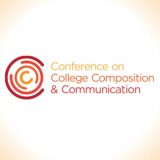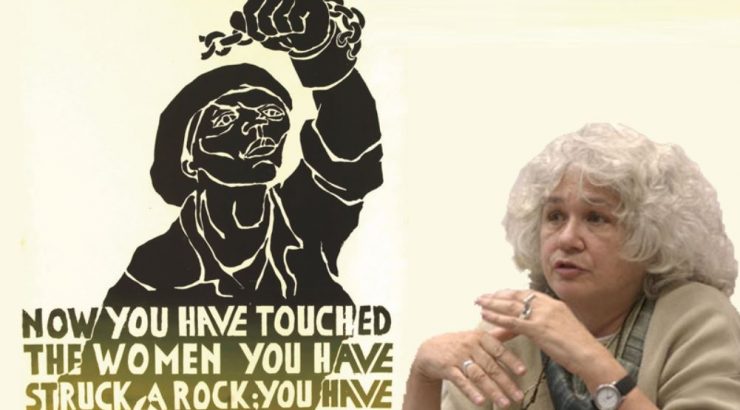
Advice From an Activist Anti-Apartheid Activist Stephanie Urdang visits and speaks at Chapman
March 9, 2020
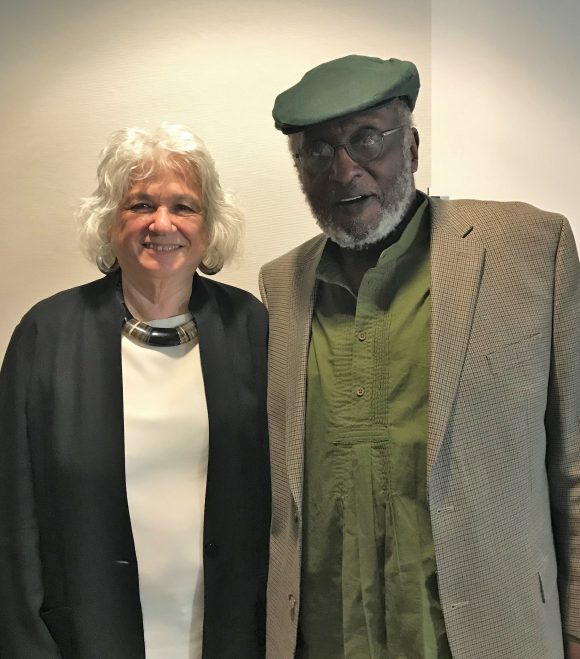
Stephanie Urdang (left) and Dr. Prexy Nesbitt (Peace Studies)
South-African born Stephanie Urdang, a journalist, activist, and U.N. consultant, recently spoke on campus in a lecture entitled, “A Woman’s Lifetime Struggle on Gender, War, and Peace Issues.” The event was hosted by the Peace Studies Department in Wilkinson College.
Urdang was raised in South Africa in Apartheid, a system of instituionalized racial segregation and stratification that ensured that South Africa’s white minority would remain politically, economically, and socially dominant over all others, especially Black Africans. She spoke of her gradual awareness of her privilege as a young white child, attending a good school while black children sat uneducated in extreme poverty. She recounted her father and she watching a live broadcast on February 11, 1990, when Nelson Mandela was released from prison. Mandela had spent twenty-seven in prison for his anti-apartheid advocacy.
At the age of 23, Urdang made a big decision. “I left South Africa in 1967 and came to this country. It was just the beginning of the awareness of what was happening in South Africa and I could see how the policies in America were affecting South Africa. So, my interest grew out of empathy,” she said.
Urdang became involved in the 1980s Anti-Apartheid Divestment campaign. The divestment movement occurred predominantly on U.S. college campuses, where students pushed their institutions to take their investments out of South Africa and put pressure on the white-controlled government to end Apartheid.
“On some campuses, students would build models of shantytowns so that people could actually see what it meant to live in South African shantytowns. They had sit-ins at major corporations to say, ‘You cannot do what you’re doing because this is our money and this is our lives.’ So you had a lot of direct actions.” Urdang explained.
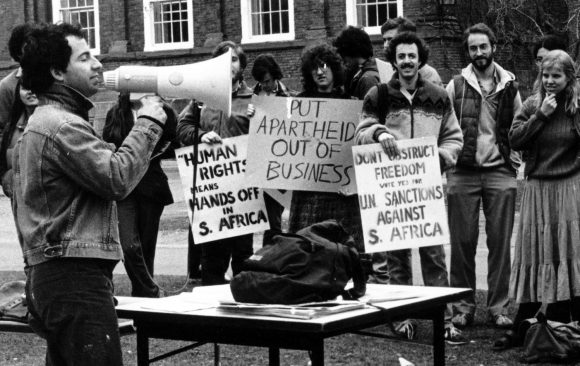
A speaker addresses the crowd of students gathered to protest Harvard’s investment in South African holdings during the late 1980s. A sign reads: “Put Apartheid Out of Business.” (Harvard Crimson)
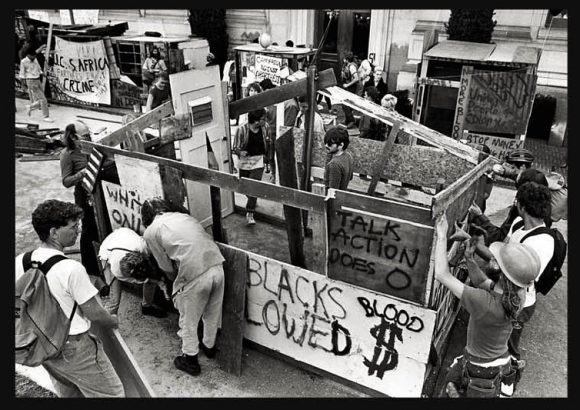
Students at UC Berkeley build a shantytown on their campus as part of the Apartheid Divestment Campaign. (Paul Miller/ United Press International)
“I think that she has a very unique perspective of a Southern African woman who knows South Africa and the United States,” said Wilkinson’s Department of Peace Studies presidential fellow Dr. Rozell “Prexy” Nesbitt, who invited his long-time friend Urdang to Chapman. “She knows about the issues of inequality and equality and has taken a stance for students here at Chapman.”
The lecture had a large attendance from faculty, staff, and students. The entire room sat intently listening to Urdang talk about her upbringing, her immigration, her work as an activist, and the history of South African Apartheid. Hayley March (‘20, Business Marketing) and Saba Amid (‘21, Political Science and Peace Studies) were among those in attendance.
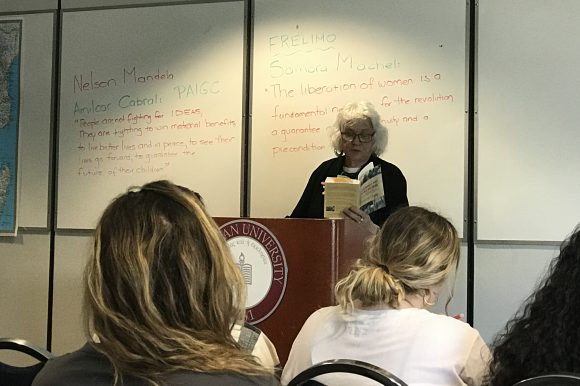
Urdang reads a passage from her memoir to students.
“I thought it was really interesting because you don’t hear about South African liberation movements in the United States,” said Amid. “I think that this is a type of issue that we can see happening in other parts of the world and I think that it is important to be aware of these events.”
“I also think that it is amazing to learn through people’s personal stories rather than the textbook,” added March. “Because everyone can memorize dates, but to hear a story directly from the person whose story it is — it isn’t something we get to do often.”
When asked if college students should get involved in activism and positive social movements, Urdang says, “Do it!”
“There is a space for everybody and I think that everybody has the potential to be the cause of change,” she said. “It just takes a lot of commitment but I am inspired by your generation’s activism. Follow your heart!”
